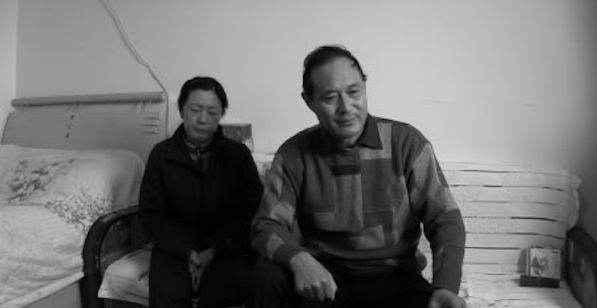Karamay is a staggering documentary about a tragedy that killed nearly 300 schoolchildren in China. The children were performing on stage for local officials when a fire broke out in the theater. The officials were allowed to evacuate first, and by the time they left, nearly all of the children had perished in the flames. Fifteen years after the tragedy, filmmaker Xu Xin interviewed the parents and teachers of the children, who, after all this time, have not been allowed to publicly express their feelings about the deaths.
This is the first opportunity for these people to give public testimony on the deaths of these children, and Xu Xin lets them speak for as long as they wish. There are 20 of these interviews, ranging from one minute to one hour. Karamay is six hours long, a running time that it earns, not only because the film serves as a public record of a suppressed tragedy, but because of how it immerses us in a community both devastated and fragmented by that tragedy.
As we listen to one heartbreaking testimony after another, we see how each family has been torn apart by feelings of guilt and injustice over their child’s death. You can see it in the way they sit, the body language between a wife and a husband. There’s also a sense of uniformity in the decor of their homes: bare light walls, upholstered sofas. It’s the surface appearance of once-ordinary families whose experience has left them carrying an emptiness, one that fills their rooms as they speak.
The isolation that comes with grief, compounded with social injustice and alienation, comes through again and again in these interviews. But as this feeling accumulates over the span of this monumental film, one gets the sense of a community somehow being put back together through this movie, in the way that it connects these broken pieces of families into a collective expression of mourning and a shared desire for justice. Even if that community and that justice can’t be achieved in the real world, the cinema of Karamay preserves a vision of its possibility.
Kevin B. Lee is a filmmaker, critic, video essayist and founding editor of Keyframe. He tweets at @alsolikelife.




